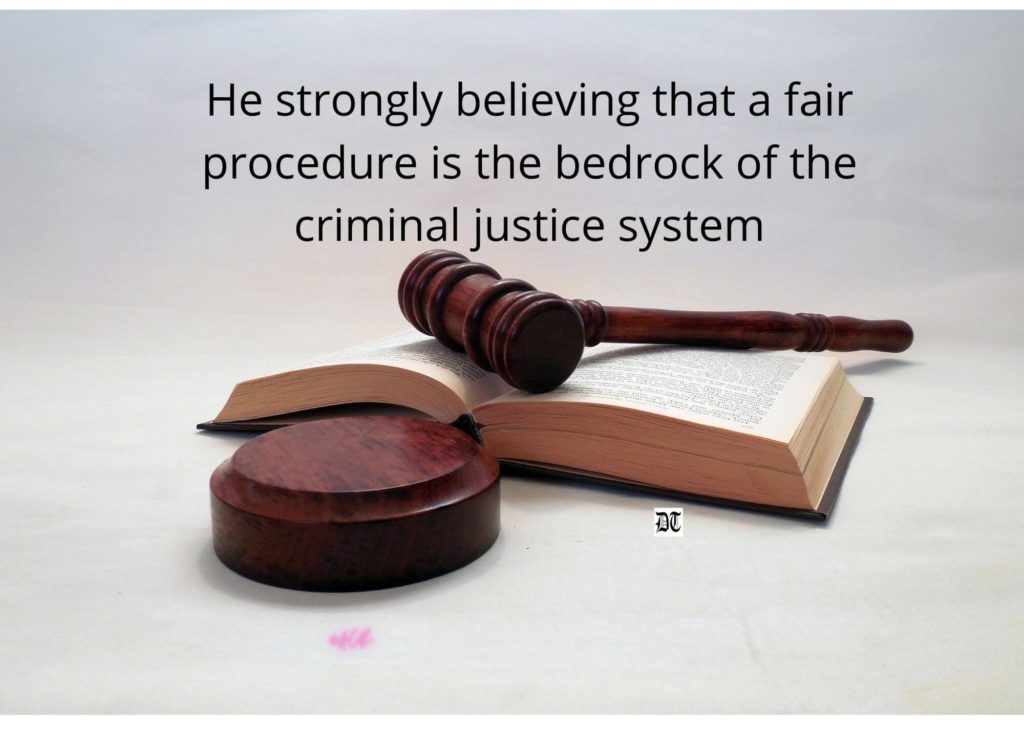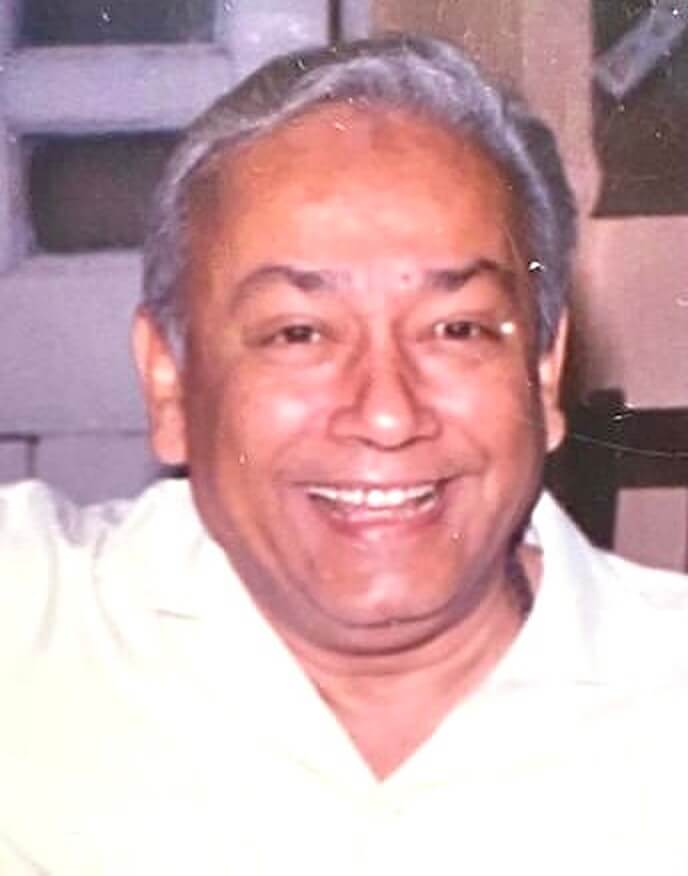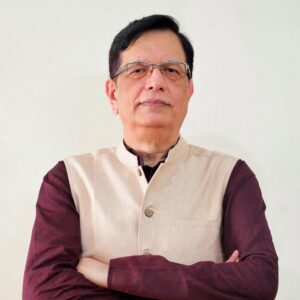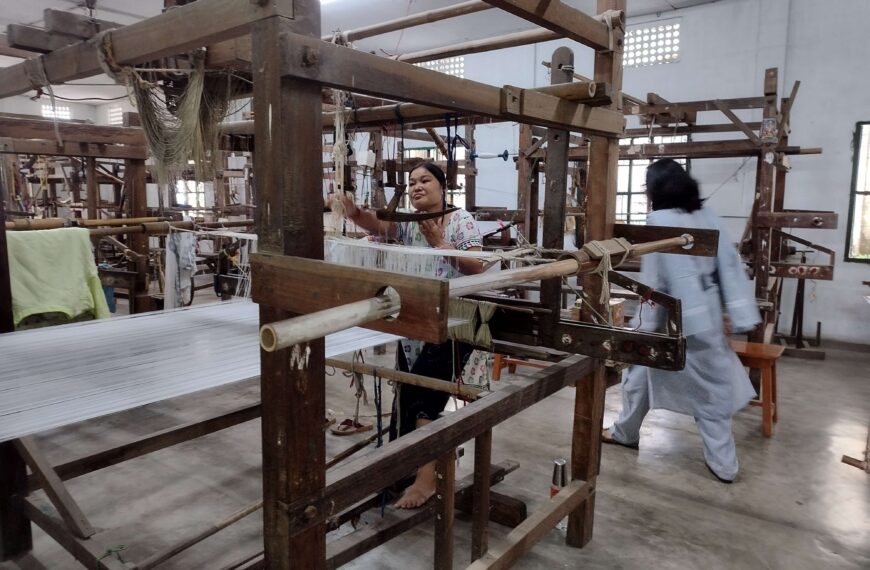Ram Krishna profiles Late Justice Palok Basu, a humanist and a devout person, exclusively for Different Truths.
Times change. People depart. Events pass away. Yet, some stories remain, because of their inspirational underpinning. Here is a story of the late Justice Palok Basu who, braving many odds, personal and external, carried a novel campaign for the cause of social order and amity in the City of Ayodhya.
Born to a humble family in Allahabad, Justice Basu had his schooling, graduation, and Bachelor of Law from Allahabad University. During his college days, he was interested in theatre and his interest in the craft grew in time, evolving him into an accomplished theatre artiste. He was actively involved in the cultural scene of the city and participated in many popular programmes like Hawa Mahal of DD, AIR-sponsored and local cultural club-organised dramas, working along with many theatre icons of the time. The passion continued even while he practised as a lawyer. His deep appreciation of art and culture, coupled with his warm-hearted, sprightly and helpful nature, endeared him to the members of socio-cultural groups and clubs of Allahabad, who fondly called him “Palok da”. This bond of brotherhood he built over time with the city and its people was special to him and he nourished and cherished this relationship throughout his life.
… Justice Basu had his schooling, graduation, and Bachelor of Law from Allahabad University.
Upon completing his LLB, Justice Basu started his legal career in 1962 as an advocate in Allahabad High Court. By dint of his sheer hard work, sharp intellect, and oratorial skill, he soon carved a name for himself as a brilliant criminal lawyer in the legal fraternity. His admirable attainments and reputation were recognised and rewarded well when, in 1987, he was appointed as Judge of the Allahabad High Court.
A Heart that Beat for People’s Rights
His glorious stint (1987-2002) at the Allahabad High Court was marked by many of his landmark judgements. His ruling, for instance, in the PIL against entry of heavy vehicles on Allahabad roads, which had created havoc to the life of common people, compelled the Central government to build on a war footing a separate bypass route for heavy vehicles. The landmark judgement is still etched out in the memory of the people of Allahabad. He also headed many Enquiry Commissions set up by the state. A straightforward and no-nonsense person, he was known for stickler to discipline and timely delivery of justice. He advocated for a healthy bond and bonhomie between Bench and Bar, and always exhorted lawyers to work hard, learn nuances of the law and prepare well before arguing a case.
Upon his retirement from the High Court in 2002, Justice Basu was appointed as President, State Consumer Dispute Redressal Commission, State of Uttar Pradesh. Revamping the processes, administration, and work ethic of the Commission, he fast-tracked justice delivery processes to protect Consumer Rights and delivered many noteworthy judgements. Justice Basu shifted his base to Delhi in 2011 to practice in the Supreme Court as a Senior Advocate.
Pioneering Work on Human Rights Protection
Justice Basu’s understanding of criminal law, human rights, and the Indian Constitution was quite deep and extraordinary.
Justice Basu’s understanding of criminal law, human rights, and the Indian Constitution was quite deep and extraordinary. This was well demonstrated not only in his insightful judgements and speeches but also in his writings. His book “Law relating to the protection of Human Rights under the Indian Constitution and allied laws”, is a landmark contribution in the repository of jurisprudence. The book is a full-fledged commentary, supported by case laws, and a comprehensive treatise, on the laws relating to human rights protection in India. It is not surprising the pioneering work is a source of reference for students, educators, and researchers of law.
Strongly believing that a fair procedure is the bedrock of the criminal justice system, Justice Basu famously said, “The objective of the criminal justice system is to render public justice, to punish the criminal, to bring society to its normalcy and to see that the trial is concluded expeditiously before the memory of the witness fades out.”

A Strong Spiritual Side
He had a strong spiritual side. He used to have a set time slot for prayers in the early morning hours and evenings as well. A firm believer in the Vedanta Philosophy of Swami Vivekananda, he was associated with many of the social, cultural, and philanthropic activities of the Ramakrishna Mission. He followed and practised Swamiji’s words “Service to humanity to service to God” in letter and spirit. An orator par-excellence, his lectures on leadership, humanity, spirituality at different public fora like IITs, Universities, Law Fora, social platforms used to be hugely inspirational and were keenly followed in social, cultural, and legal circles.
Novel and Noble campaign
From late 2009, he had set upon himself on a mission of social work that eventually took a huge dimension of great significance and impact. It was a noble and novel mission to find an amicable, out-of-court solution to the Ram Janmabhoomi-Babri Masjid issue, stuck in the quicksand of political and legal quagmire for decades.
From early 2010, Justice Basu had been visiting Ayodhya almost every fortnight, interacting with a range of Hindu and Muslim activists…
From early 2010, Justice Basu had been visiting Ayodhya almost every fortnight, interacting with a range of Hindu and Muslim activists and residents, urging them to find, irrespective of court proceedings, a “mutually acceptable solution”. Speculation in local Hindi and Urdu dailies notwithstanding, he was exploring a ‘formula’ that best suited both the communities. Yet, he was clear in his mind that the solution could only come from the people of Ayodhya.
Justice Basu used to set up meetings, mostly at Tulsi Smarak Bhawan, a stone’s throw from the then disputed spot. Before every visit, he would send invites to the religious leaders and important social figures. All the letters of invitation, dozens in numbers, used to be handwritten by him, every time without fail. He would pay the Rs 300 rent for the space to enable the dialogues. A local advocate diligently maintained a diary and minutes of the meetings -between local Hindu and Muslim notables- while Justice Basu would gently coax both sides to think outside the box. The routine continued year after year for over six years. Despite skepticism, discouragement, and opposition from vested sources, he remained undeterred and steadfast. When asked by the media about his motivation behind the painstaking work, he would humbly respond “I am inspired by my ‘Thakur’, Sri Ramakrishna Paramahansa, to continue to make a bid for lasting peace in the area”.
By the end of 2016, as part of his six-year sustained campaign for an amicable solution, over 10,502 people- comprising about 60% Hindus and 40% Muslims-signed a petition endorsing a proposal for a solution. The proposal, which among others, spoke of relinquishing claims on land by Muslims instead of an alternative site, in the spirit of giving and take, simultaneous construction of mandir and mosque, was submitted to Faizabad Divisional Commissioner, the Receiver of the Ram Janmabhoomi site, for onward submission before the Hon’ble Supreme Court.
Somewhere in the middle of the campaign, the health of Justice Basu had deteriorated…
Somewhere in the middle of the campaign, the health of Justice Basu had deteriorated, and, to his dismay, he was advised by doctors to undergo dialysis thrice a week. But the agony on the personal health front could not dampen his indomitable spirit and optimism. He continued with his visits to Ayodhya, often missing his dialysis schedules many times.
Justice Basu passed away on his birthday-5th of February- in 2019. Sadly, about nine months before the historic judgement delivered by the Hon’ble Supreme Court on the Ayodhya issue. How relieved, one wonders, he would have been to see the resolution of the knotty issue that haunted the nation for so long?
Glorious Legacy
No surprise, many actors, political or otherwise, may now bask in the reflected glory of the SC-verdict, grab the limelight, or crave credit, but let us not forget the selfless and relentless crusade of Justice Basu. His rich contributions lay in preparing a robust ground of amity, tolerance, reciprocity, and trust and goodwill among the local communities through a healthy democratic process of discussion, dialogue, discourse, and negotiation. Given the sensitivity and complexity of the matter, such social pre-conditioning, and social capital, were crucial for a broad acceptance of any solution, by Court or otherwise, by all the stakeholders.
Many of the ways advanced in the proposal submitted by Justice Basu find reflection in the verdict of the Hon’ble Supreme Court.
Many of the ways advanced in the proposal submitted by Justice Basu find reflection in the verdict of the Hon’ble Supreme Court. Some diverge. But that does not matter. What matters, and should matter, is the noble intent, missionary zeal, and inexhaustible spirit shown by him, despite serious odds to his health, to foster social cohesion, communal harmony, and enduring peace in the holy city.
Leo Tolstoy once said, “It is by those who have suffered that the world has been advanced.” The eminent jurist’s life and work is an apt example.
Photo sourced by the author and visual by Different Truths






 By
By
 By
By
 By
By
 By
By